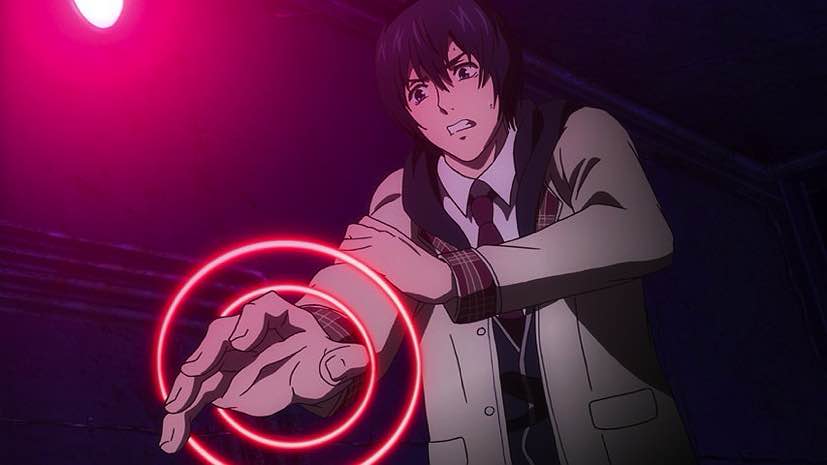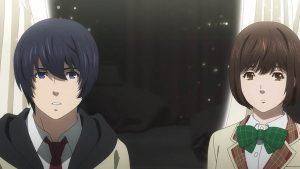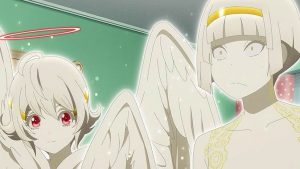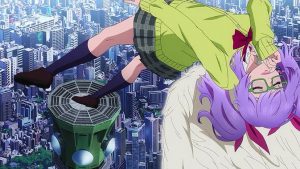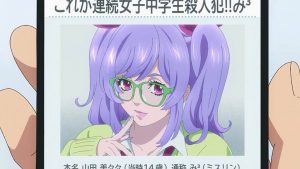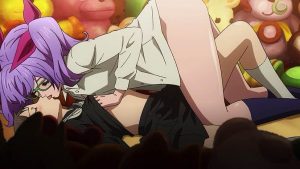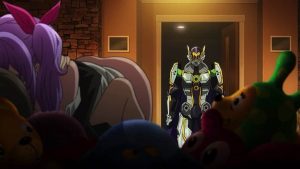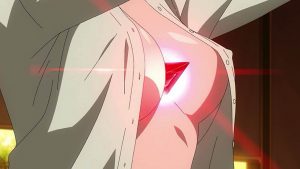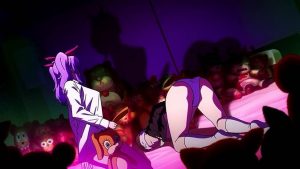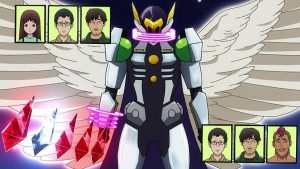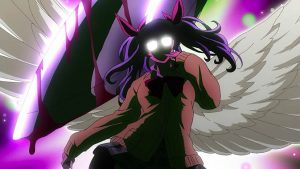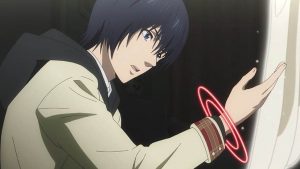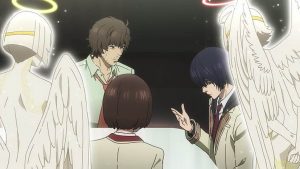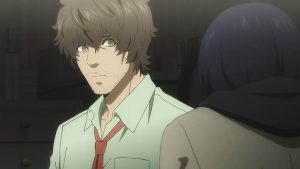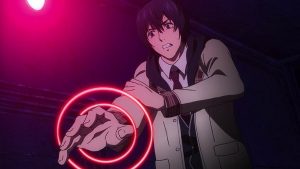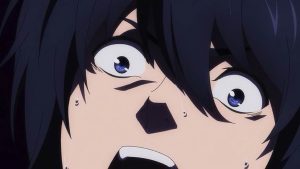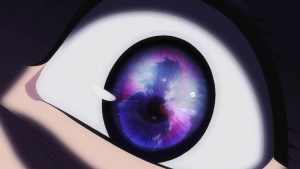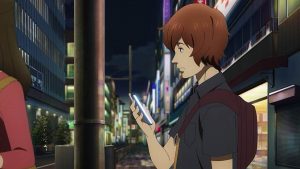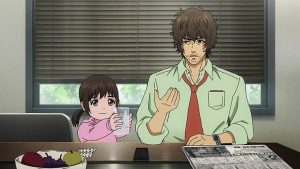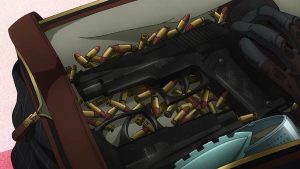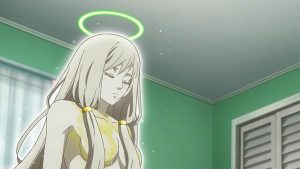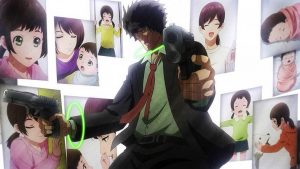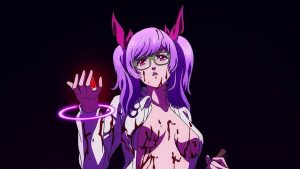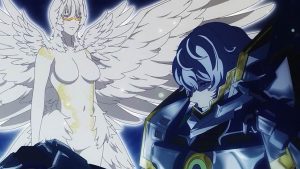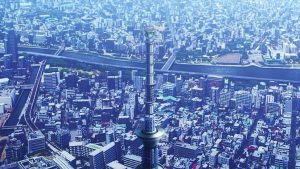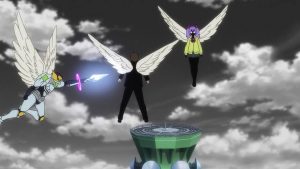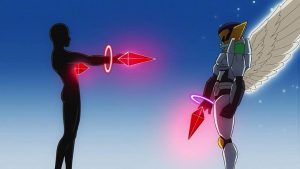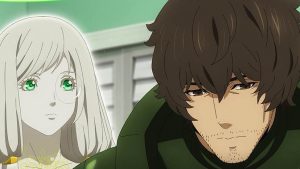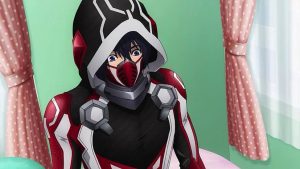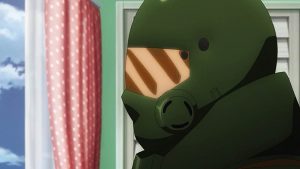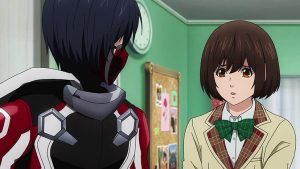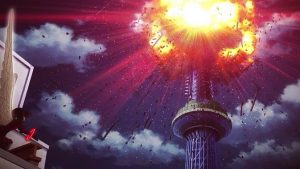Platinum End is a piece of work, boy. It kind of strikes me as the sort of series a less established mangaka than Ashirogi Muto could never have gotten published, at least in its final version. I’m not sure to what extent this sort of figure takes input from editors, but one gets the sense there wasn’t much with this series – it has the aura of one where the writer just did what he wanted because he could. And as you’d expect, there are times when that really works and times when it totally doesn’t.
The focus on serial killer girl – AKA Yamada Minami – is one such diversion. It all plays out, as much of Platinum End does, as part of the cat and mouse game between Metropoliman and the good (as such) guys. In that sense the series begins to resemble Muto’s Death Note more than Mirai Nikki, although Metropoliman is not quite as brilliant at Yagami Light – nor his powers quite as infallible. He has to work a little harder to get what he wants than Light does, but that gives him a certain canny resourcefulness that makes him a good antagonist.
Of course, that calls out the absence of an L figure in Platinum End – and L was, of course, the best character in Death Note by far. That’s where Mukaido-san comes in. He’s certainly nothing like L, but he levels the playing field between MiraiSaki and Metro in a much-needed way. Those two were in way over their heads, way too naive and innocent for the game they’re playing. The angels (especially Revel) help, but Mukaido is the lens through which the reality of the series can be seen more clearly. He’s smart though not cartoonishly so, and a guy with nothing to lose. He’s not going to let Mirai stay in his fantasy bubble unchallenged until it’s too late.
Mirai is a crucial figure in all this above and beyond simply being the protagonist. He’s got the white arrows, he’s the one who can pose a real threat to Metropoliman. But he’s a pacifist, above and beyond simply being a kid – he doesn’t want to kill anybody, even a killer. No matter what the angels and Mukaido cook up for a plan, it can’t really succeed if Mirai stays firm in his resolution not to kill. I would never accuse this series of being deep and philosophical, but it does ponder on Mirai’s nature and whether it’s right or wrong in the current environment.
As for Metro, Yamada is simply a tool for him. His game is all about drawing out the enemy without exposing himself in any way, and for that he wants Yamada to be as garish as possible in her leisure activities. That’s no problem for her – it suits her nature perfectly. He indulges her (and is amused too, given the Minamikawa sidebar), she provides him a service. Given the busybody nature of Mirai and even Mukaido, they’re obviously not going to let her spree go on forever, even knowing she’s no more than bait.
Uryuu was smart about this – the drawback to the stadium gambit was that it allowed his enemies to blend in with a crowd (a necessary concession to try and lure them out). This time he has Yamada stash her victims on the roof of a Skytree-like structure, basically limiting potential meddlers to God candidates. It’s ironic that Mukaido should have been fooled by the notion of conventional weaponry being used against God candidates, given that he’s a proponent of it – and Uryuu’s attitude towards his so-called allies basically means that for him, no option is off the table.


